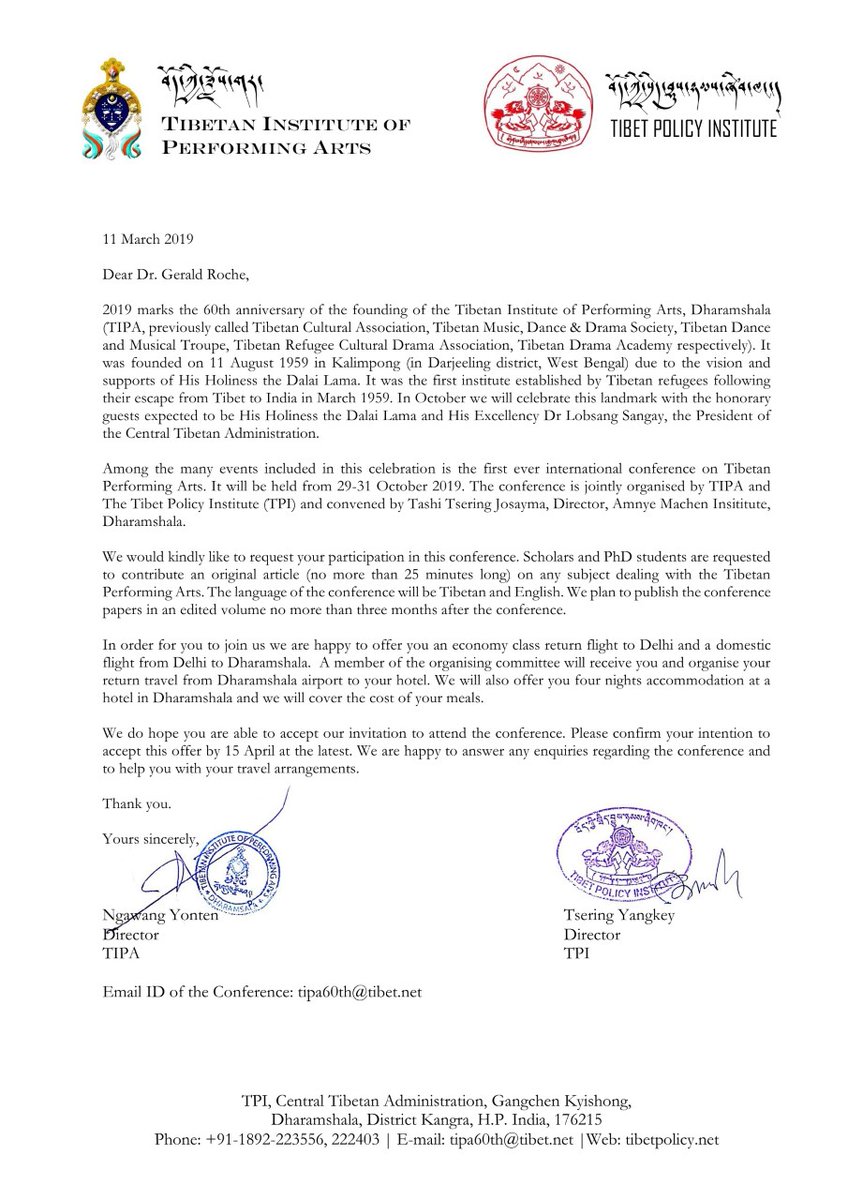
This year, I’ve continued writing about Tibet’s minoritized languages, the ongoing efforts to eliminate them, and the issue of language oppression across the Himalayas and around the world. [thread]
This article looks at how race and language oppression are entangled in Tibet, and lays the groundwork for a raciolinguistic approach to the global language crisis.
doi.org/10.1016/j.lang…
doi.org/10.1016/j.lang…
This article examines the emergence of a language rights discourse among Tibetans in China, and shows how this discourse works against the interests of Tibetans that sign and speak minoritized languages.
doi.org/10.1080/103578…
doi.org/10.1080/103578…
This chapter looks at expressions of language ideologies in Tibetan pop music; I argue that lyrical expressions of linguistic nationalism alienate speakers and signers of minoritized languages from the Tibetan nation.
taylorfrancis.com/chapters/alpha…
taylorfrancis.com/chapters/alpha…
This article (backdated to 2019) critically examines the role of ‘ideological clarification’ - does clarity and unity of purpose help a community maintain their language? In the context of ongoing oppression, probably not.
muse.jhu.edu/article/752824…
muse.jhu.edu/article/752824…
I published two article that place Tibetan language politics in transnational/ regional perspective...
This article, with @superlinguo & @WaterThe_Planet looks at language and identity in the Syuba community of Nepal. In China they would be classified as being and speaking Tibetan but in Nepal things are more complex.
doi.org/10.1515/multi-…
doi.org/10.1515/multi-…
This article (open access), with @DrAlexEDavis @superlinguo & @WaterThe_Planet looks at how environmental harms and language oppression intersect across the Himalaya, & how the discipline of international relations fails to capture this dynamic
doi.org/10.1080/103577…
doi.org/10.1080/103577…
I also published two articles on urbanization in Tibet. I’m interested in urbanization as a means of colonial governance and a mechanism for language oppression...
This open access book chapter, with @jleibold & Ben Hillman, charts Tibetan views on urbanization through an analysis of three pop songs.
press-files.anu.edu.au/downloads/pres…
press-files.anu.edu.au/downloads/pres…
In another article with @jleibold & Ben Hillman we show how urbanization works as a technique of colonial governance in Tibet, through 3 mechanisms: segregation, congregation, and negation.
doi.org/10.1080/216226…
doi.org/10.1080/216226…
Finally, in this @AmAnthroJournal article I argued that we need to drop the language endangerment discourse and centre language oppression and linguistic justice instead.
doi.org/10.1111/aman.1…
doi.org/10.1111/aman.1…
Given that I seemingly can’t return to China, this probably marks the tail end of my research and writing about Tibet’s minoritized languages, tho I’ll have a book on the topic in 2022...
Next year I’ll be writing on the historical anthropology of the global language crisis, the necropolitics of language oppression, and denialism in relation to language rights.
A particular pleasure this year was being able to collaborate with and learn from so many people. Many thanks to @jleibold @WaterThe_Planet @DrAlexEDavis @superlinguo @ChickashaJenny @kerim @RuthJSinger & Ben Hillman
In addition to these chapters and articles I also published some short online pieces this year, on language politics, anti-Asian racism in the pandemic, and crisis communication in the Himalaya
https://mobile.twitter.com/GJosephRoche/status/1339527143458361344
And finally I was also delighted this year to announce this news:
https://mobile.twitter.com/GJosephRoche/status/1335449134904401921
One last publication to add for 2020. This article looks at the colonial manipulation of language ideologies in Tibet, and is open access.
elpublishing.org/docs/1/19/ldd1…
elpublishing.org/docs/1/19/ldd1…
• • •
Missing some Tweet in this thread? You can try to
force a refresh




